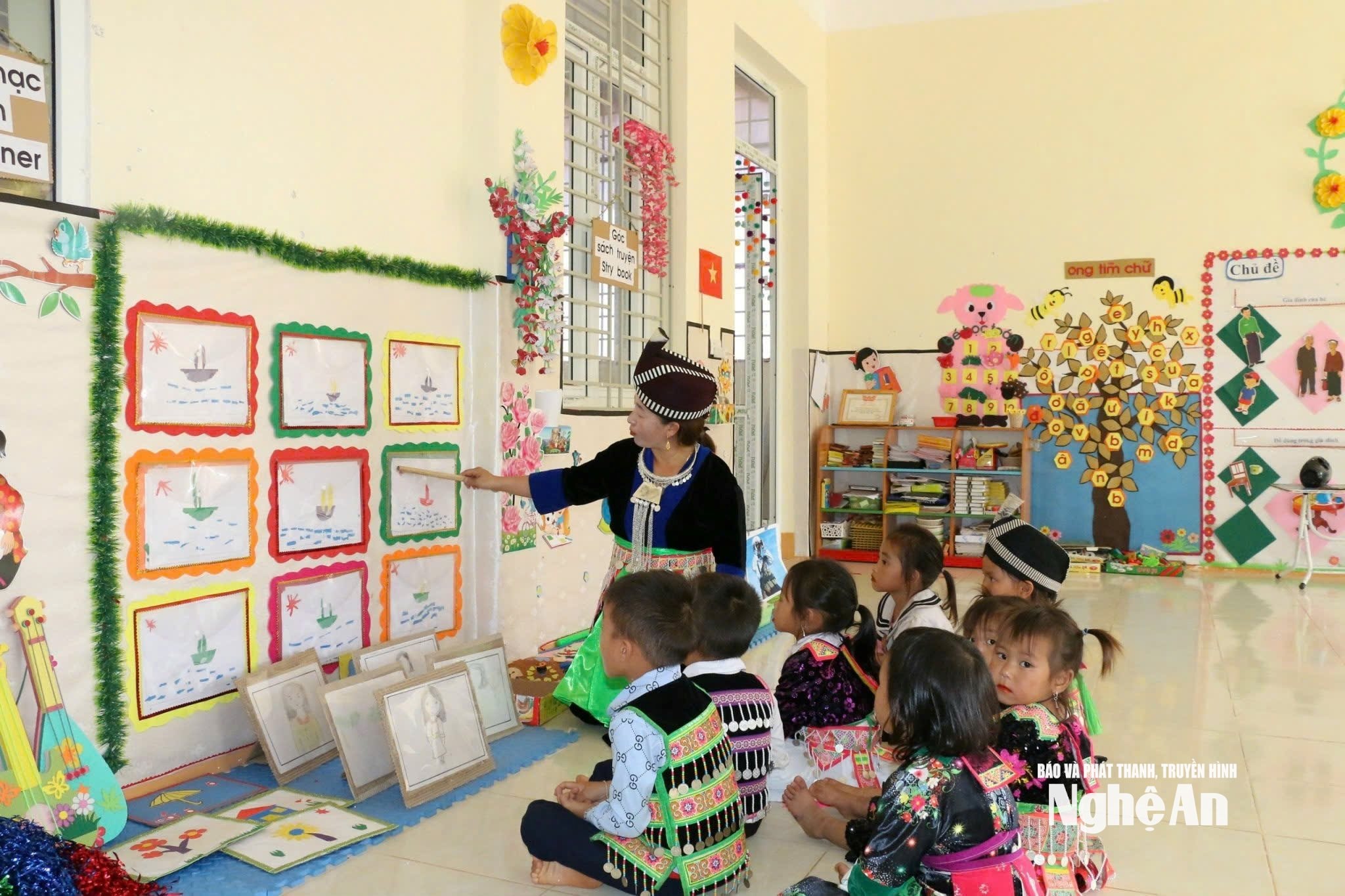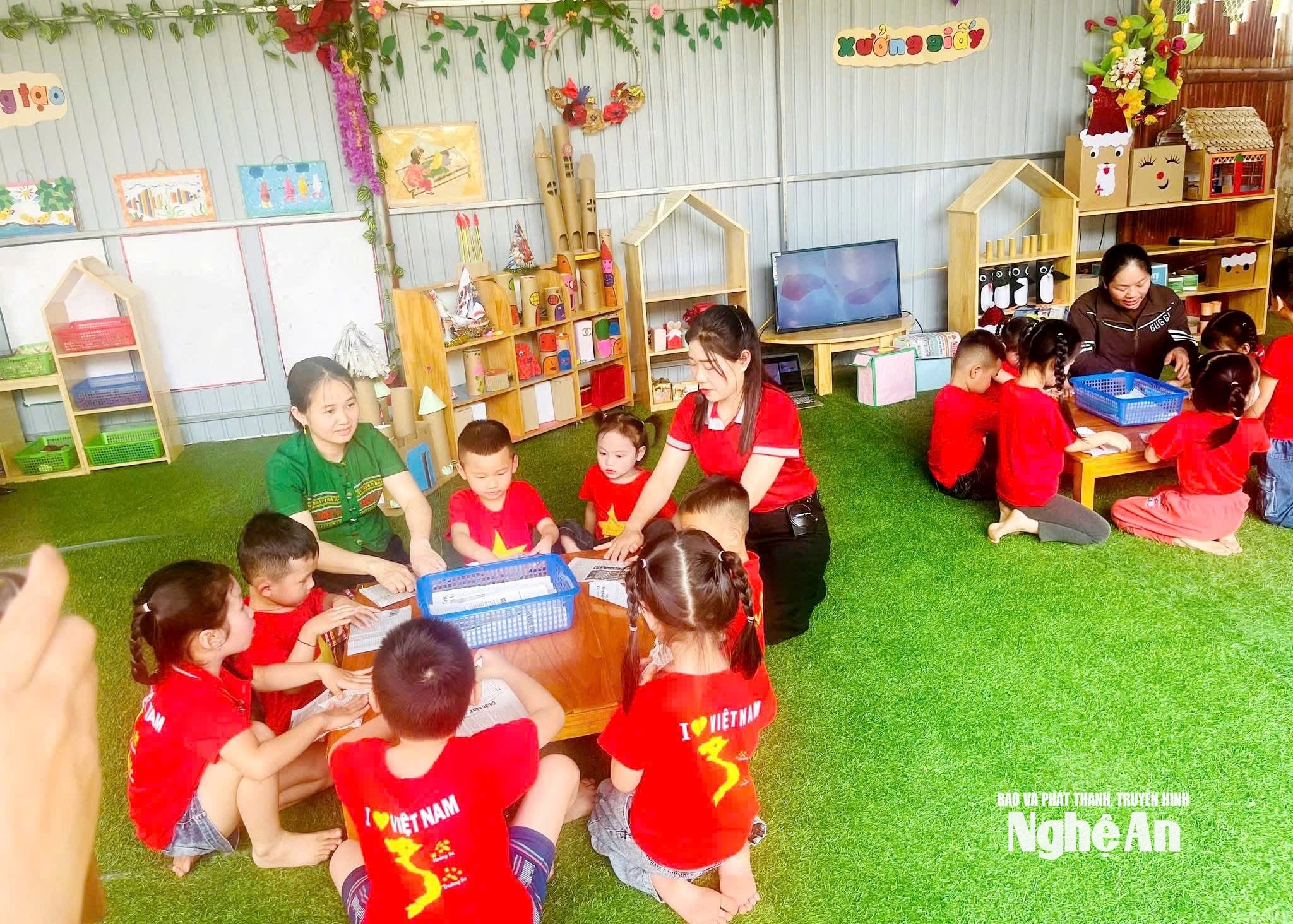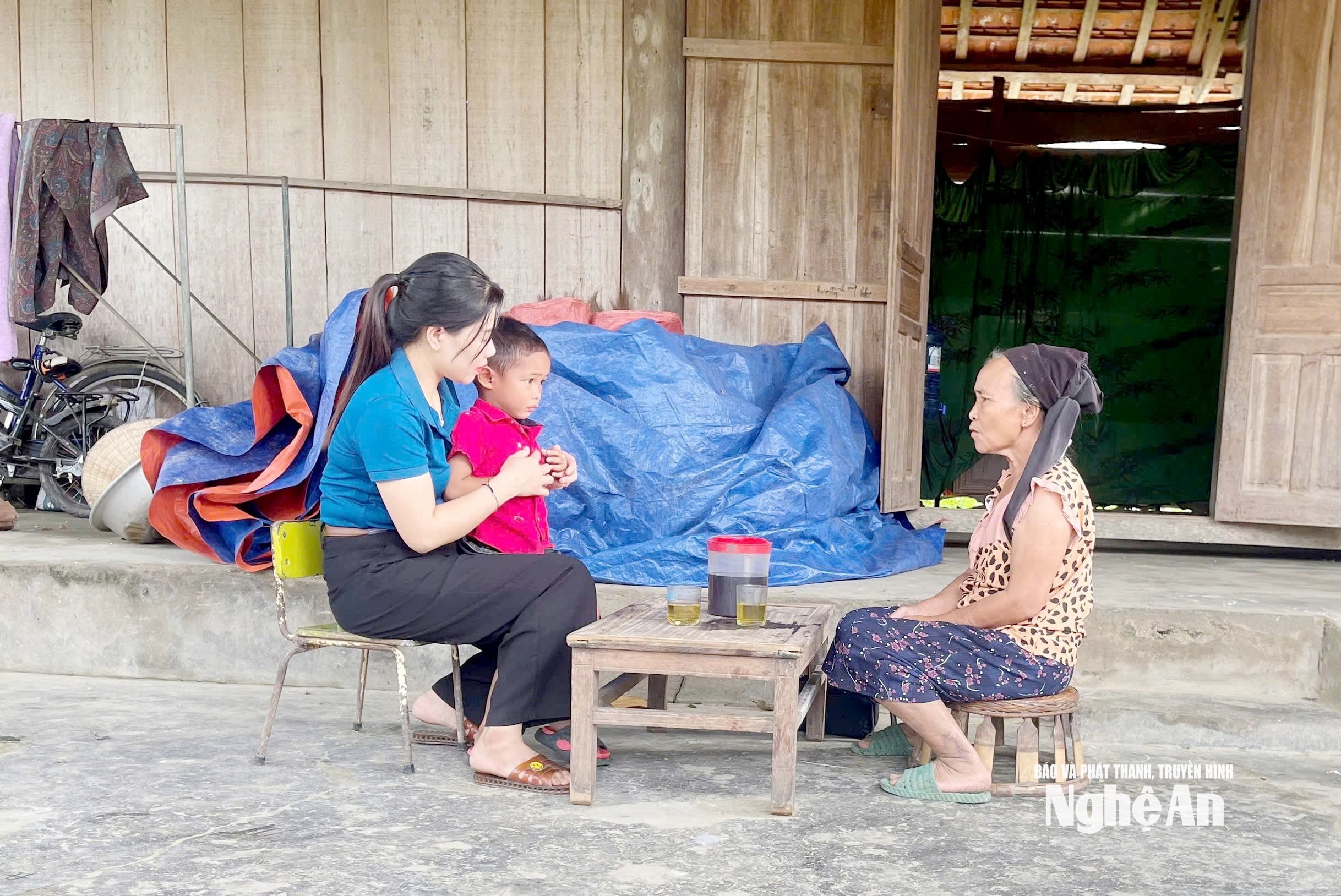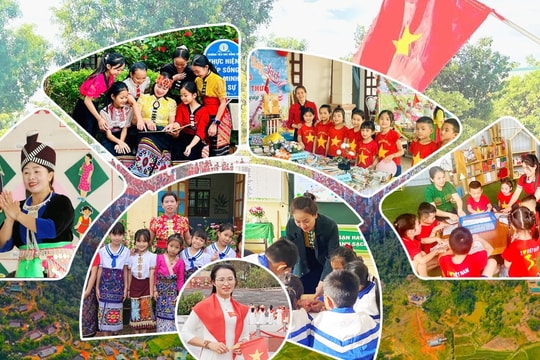Topic: Journey of spreading knowledge in the border of the FatherlandPart 1: Hearts return to the homeland
Growing up in remote villages, having experienced poverty, hunger and illiteracy, teachers from ethnic minorities understand more than anyone else the meaning of going to school. And so, although they have had many opportunities to go far away, they have returned, to the villagers, to the students to spread knowledge in their homeland.
.png)
Reporter Group -Technique:Hong Toai• November 5, 2025
------------------o0o-----------------
Growing up in remote villages, having experienced poverty, hunger and illiteracy, teachers from ethnic minorities understand more than anyone else the meaning of going to school. And so, although they had many opportunities to go far away, they chose to return, to the villagers, to the students to spread knowledge in their homeland.
------------------o0o-----------------
.png)
In the past, because of the difficult terrain, to get from home to school, she had to take a 7-way loop down to Vinh city and then back up to Highway 48, catching several buses for nearly 500km. Now the road is open and easier to travel, but she only visits home occasionally. "I got married and moved to Tri Le, and have been working here for 17 years. Now I consider this my hometown" - Teacher Lau Y Pay confided.
For nearly 20 years of being attached to this land in the border region, teacher Lau Y Pay has spent most of her time at Huoi Moi school: "I usually wake up at 5am and it takes nearly an hour to get to school, if the weather is favorable. But when it rains, the school is located on a high mountain, precarious, the road is slippery, sometimes I have to stay at the house of the local people" - Ms. Pay recounted.

After so many years of working at the highland school, Ms. Pay also jokingly said that she had to change two motorbikes and from a “stranger” she had become a skilled driver who could conquer any road. Although the teaching conditions were still difficult and lacking, her greatest joy was seeing her students happily go to school every day.
Looking at the students today, carrying rice and lunch boxes to school every day, teacher Lau Y Pay remembers herself in the past. At that time, the children in the village, even if they went to school, would drop out of school and get married at the age of 14 or 15. Growing up in that situation, teacher Lau Y Pay also thought of "giving up the game" because she was afraid that she would be late for marriage, late for children, and too old. But then, her parents were the most progressive, encouraging Lau Y Pay to go to school, so that she could change her life soon and have a stable job. "My family has 8 siblings, all 8 of them went to school and now 4 of them are state employees. As for me, after finishing high school, I registered to take the entrance exam to the College of Pedagogy, majoring in preschool education because I love singing, dancing and children. After graduating, I was assigned to teach in Que Phong district (old) and have been here for nearly 20 years."
.png)
The first time she came to Huoi Moi, teacher Lau Y Pay could not help but remember the image of the kindergarten, which was just an old, low wooden house, shorter than her height. The whole village had only 15 children attending the kindergarten. When teacher Lau Y Pay first came, the villagers had not yet sent their children to primary school at the right age, making it even more difficult to mobilize children for kindergarten.
Growing up in the village, Ms. Lau Y Pay understands very well the customs of the people here and the habit of bringing their children to the fields. To change the perception, the teacher and her colleagues have only one way, which is to go to each house to propagate and mobilize, persistently from day to day and continuously for many years.
The road to school for Mong children was later shortened when the government paid attention to them and had policies for ethnic minority students. However, because the school was located in a remote area and conditions were still difficult, instead of organizing boarding at the school, teacher Lau Y Pay had to go to each house to guide parents to join hands in organizing boarding for the locals. Thanks to this solution, in recent years, all school-age students in the village have gone to school. Five years ago, Huoi Moi school was rebuilt, with spacious classrooms and a place for children to sleep at noon, so parents have more confidence. Not only do they volunteer to prepare lunch for their children every day, but they also have more knowledge to take care of their children and prevent malnutrition.
After many years in the village, teacher Lau Y Pay had many opportunities to return to the central school, near her home, and have the conditions to take care of her family. However, she still chose to stay because she was familiar with the parents, the villagers, and the customs. Deep down, teacher Lau Y Pay knew that this was a hard and tiring job and she wanted to help her colleagues shoulder these burdens.
With these silent contributions, teacher Lau Y Pay was once honored by the Ministry of Education and Training as a national outstanding female teacher. This year, once again, she was selected to be honored in the program "Sharing with teachers 2025" organized by the Central Committee of the Vietnam Youth Union in coordination with the Ministry of Education and Training, and Thien Long Group. Sharing about her work, teacher Lau Y Pay added: "When I chose to be a preschool teacher, I always considered taking care of and teaching young children a great responsibility, and at the same time my happiness. Therefore, even though I work in a place with many shortages and difficult roads, especially during the rainy season, I still persevere, because my love for the job and love for children is the driving force that helps me overcome all difficulties."
.jpg)
.jpg)
-0d42b290d845ea56a14ec0ddda195fb6.jpg)
.png)
Born in Yen Khe commune (former Con Cuong district), now Con Cuong commune, from a very young age, Lo Thi Thuong dreamed of becoming a preschool teacher. Growing up, the Thai ethnic girl took the entrance exam to the Pedagogical College, majoring in Preschool Education, then continued her studies at university and returned to her hometown to work.
Since 2014, Lo Thi Thuong has been a teacher at Luc Da Kindergarten, then a year later she moved to Mon Son Kindergarten until now. Mon Son Commune, where Ms. Thuong works, is a remote, isolated, and especially difficult border area. Mon Son Kindergarten has 7 campuses, and traveling to some campuses is still very difficult, especially in Khe Bung and Co Phat villages.

Returning to the borderland, teacher Lo Thi Thuong volunteered to teach at a separate school in Co Phat village, at the source of the Giang River. Life here is still difficult, the students are mainly children of the Dan Lai ethnic group - a very backward ethnic group. Here, every day the children go to school without enough food and warm clothes in the cold winter. However, this place is always filled with sincere and simple feelings. Teachers and students are close to each other like family members. The children's laughter and joy of going to class is the motivation for young teacher Lo Thi Thuong to overcome all the hardships in daily life.
.png)
The school's facilities are still lacking, classrooms are degraded, and supplies and toys are not diverse. Dan Lai students are not yet proficient in Mandarin and are still shy in communication, and often do not attend school regularly. To overcome this, teacher Thuong and her colleagues often make their own supplies and toys from available materials. The teachers always try to create a close learning environment, encourage students to boldly communicate, and practice the habit of attending class regularly. Through the process of learning and integrating Vietnamese language teaching to children every day, the children have learned to dance, sing, recite poems, become familiar with letters, numbers, colors, and shapes. Many students have mastered Vietnamese and especially become more confident and innocent.

As a young teacher, Lo Thi Thuong always has a sense of responsibility in her work, is enthusiastic and has solid expertise, and regularly cultivates professional ethics. In teaching, she is always conscious of seeking new knowledge, creating and innovating teaching methods to organize fun learning activities for children in the direction of child-centered education. At the same time, teacher Lo Thi Thuong also actively applies information technology in the teaching process, applying artificial intelligence AI to design lectures, poems, stories, games, songs, etc. Thereby, aiming to attract children's interest in class.
With solid expertise, Ms. Thuong is always assigned to conduct specialized seminars and learning activities in the STEM direction, helping children work in groups to promote their positivity. In addition, she also conducts multicultural music activities for students, helping children approach many different cultures, creating a greater love for the culture of their country. Through children's fun learning activities, Ms. Thuong always inspires students positively to help them develop comprehensively.

In addition to school activities, after school hours, teacher Lo Thi Thuong often visits the homes of some students who often miss school to encourage parents to bring their children to school every day, creating conditions for the children to be cared for and educated more comprehensively. Thanks to that, parents in the village have brought their children to school more regularly and fully.
Although there are still many difficulties, my love for the profession and for children, the trust of my colleagues and parents are the motivation for me to continue on the path I have chosen. I believe that with the perseverance and solidarity of teachers, parents and society, children in the highlands will have more and more opportunities to learn, develop and shine.
Teacher Lo Thi Thuong
With that in mind, many teachers who are children of ethnic minorities have chosen to return to the place where they were born, to bring love and enthusiasm to accompany children on their way to school. It is this return that has ignited the love for the homeland and the devotion to the teaching profession in the remote border region.
------------------o0o-----------------
(To be continued)

.jpg)


